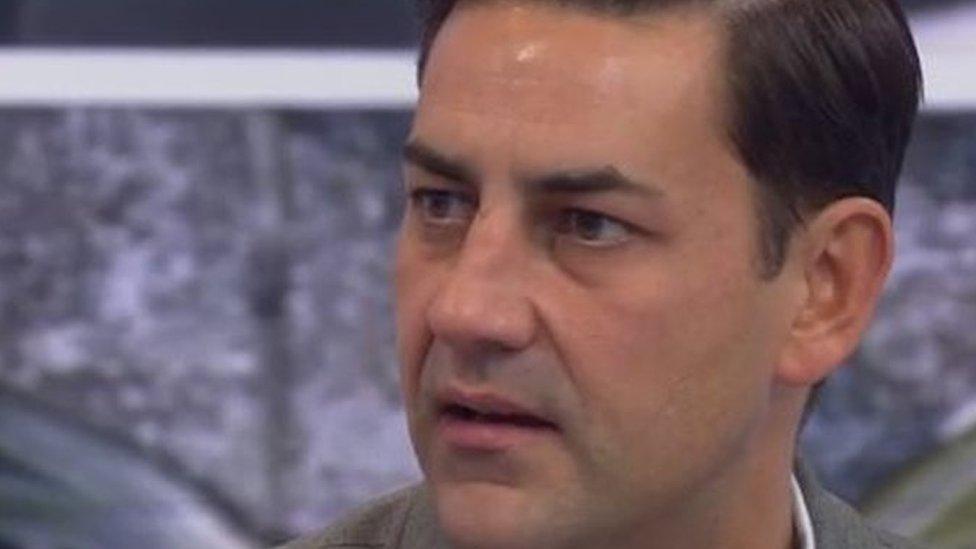Football sex abuse victims: 'I was raped up to 100 times'
- Published
A number of ex-footballers have come forward to say they suffered sexual abuse as children at the hands of coaches.
Those who have spoken publicly include Andy Woodward, Chris Unsworth, Jason Dunford and Steve Walters.

'I kept it locked away'
Andy Woodward speaks about being sexually abused by his coach
Andy Woodward, 43, was the first player to go public when he revealed he was abused by coach Barry Bennell, 62, who has served three jail sentences for child sex offences.
It happened between the ages of 11 and 15 while he was a member of Crewe Alexandra's youth team.
"I kept it locked away in the back of my head," he told the BBC's Victoria Derbyshire programme.
Bennell had threatened to take his career away from him, he alleged, adding: "It was that control - that all I wanted to do was be a footballer."
Mr Woodward, who played for Bury and Sheffield United, retired from the game in 2002, aged 29, after suffering a series of panic attacks.
He said he wanted to encourage more victims to speak out and would "die a happy man" if he could prevent more children from being abused.

'I'm still re-living it'
Chris Unsworth: 'Still, I'm re-living things'
Ex-Manchester City youth player Chris Unsworth, 44, claimed he was abused by Bennell from the age of nine.
"It started in the car - he used to touch, play games on the way to training," he said, and later got "more serious" during sleepovers at Bennell's house where, Mr Unsworth claimed, "there was penetration".
He said although he had been "raped between 50 and 100 times", no-one ever spoke about it.
Mr Unsworth moved to Crewe with Bennell at the age of 12 when, he says, Bennell began to lose interest.
"Your body changes and that's when your time is up - he moves on to fresh blood."
Mr Unsworth said he "turned away from football" at the age of 16 because he had "had enough", adding: "I kept it locked away right in the back of my head, but I am still re-living it."

'I had a dream of being a footballer'
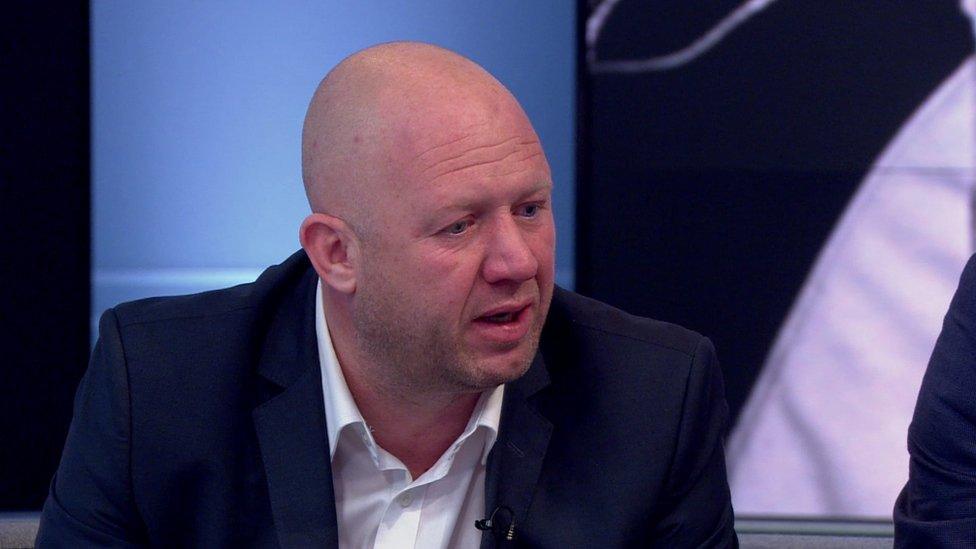
Jason Dunford: 'I told him where to go'
At the age of 13, Jason Dunford was a budding footballer when, he claims, Bennell tried to abuse him at a Butlin's holiday camp.
"I told him to get off me. I remember physically hitting him," he said. "After that he detached me from the group, saying he'd drop me."
A period of "isolation" and "mind games" followed, Mr Dunford said, where he was prevented from playing and accused of stealing money.
"He fabricated stories about me amongst my team-mates," he said, adding that Bennell told him: "Do you really want to tell your parents you'd been accused of being a thief?"
Mr Dunford, who never turned professional, pointed to a culture of silence in the 1980s and said his dream "would've burst" if he had tried to expose a coach like Bennell.
And he added: "For those parents out there kicking themselves, do not feel guilty. This man wasn't just playing games with the children's heads."

'It was all just grooming'
Steve Walters: 'I was inconsolable'
Steve Walters broke three decades of silence to reveal what he called "absolutely petrifying" abuse.
The ex-Crewe player, now 44, alleged the abuse began at the age of 12, when he would stay at Bennell's house in the town during the school holidays.
"Back in that day and age if you came out with accusations, would anybody believe you?" he said.
Bennell would "teach you these tricks and flicks, he could do things with a football we'd never seen before", he said, "but it was all just grooming, wasn't it?".
One of England's most promising young players, Mr Walters was diagnosed with a blood disorder at the age of 17, but continued to play at a lower level.
"I had problems with relationships because I've always thought, 'Am I gay?'" he said. "What's happened to us has made us feel like that - it's not right."

'He threatened to kill my family'
Paul Stewart: "It was such a taboo subject 40-odd years ago"
Former Tottenham and England player Paul Stewart, who began his professional career playing for Blackpool aged 17, told the BBC he was abused by a coach - not Bennell - for four years as a child.
"I was told that I had to do these things if I wanted to be a footballer," he said.
"He was threatening that he would kill my parents and my two brothers if I ever spoke out. I was just absolutely frightened.
"I do believe, in the days it was happening to me, it was a taboo subject, nobody spoke about it. It was brushed under the carpet if it was happening. I don't think there was anywhere to turn in those days."
On coming forward now, Mr Stewart said: "I felt that I needed to do this so other people will come out and with the hope that it may stop anyone who may be thinking of doing it again, in any walk of life - not just football."
He added: "The access to children at sport level is very easy and it is the perfect ground for them to prey."

'I kept my ordeal secret'
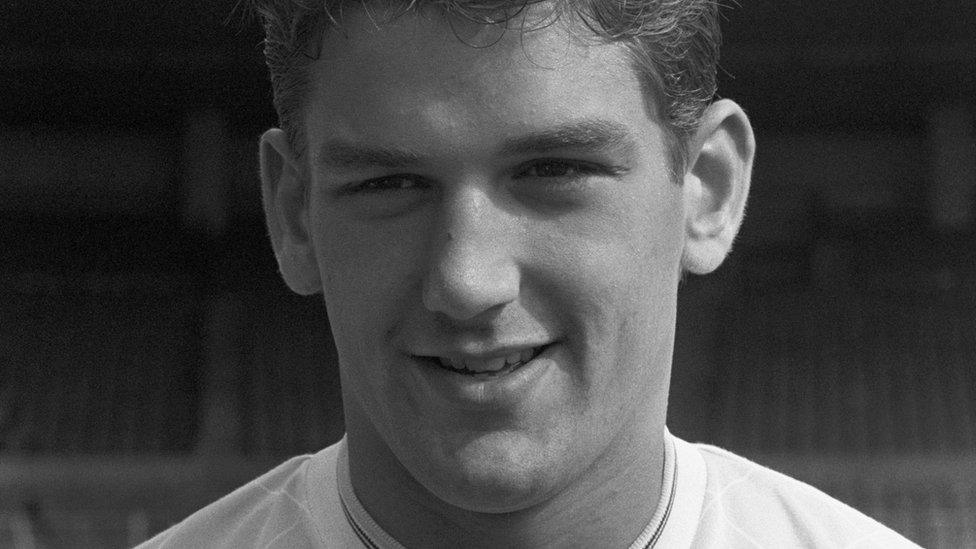
David White has written a book about his life and the abuse he said he suffered
Former Manchester City and England player David White also claims he was abused by Bennell - whom he "hero-worshipped" - and "kept the ordeal secret" from family and friends for almost two decades.
Mr White, now 49, says he was targeted in 1979, at the age of 11, when he played for Whitehill FC junior team in Manchester.
"I now realise the effects of Bennell's actions were much more far-reaching than I knew then," he said, adding the alleged abuse "influenced almost every event and relationship in my life".
"I would like to say that I do not feel brave... I feel like one of the lucky ones," he added.
"I salute Andy Woodward, Steve Walters, and Paul Stewart for so bravely revealing their personal tragedies.
"The physical abuse they and others suffered was certainly more extreme and prolonged than my ordeal, and I cannot be sure that I would have their courage."
- Published25 November 2016
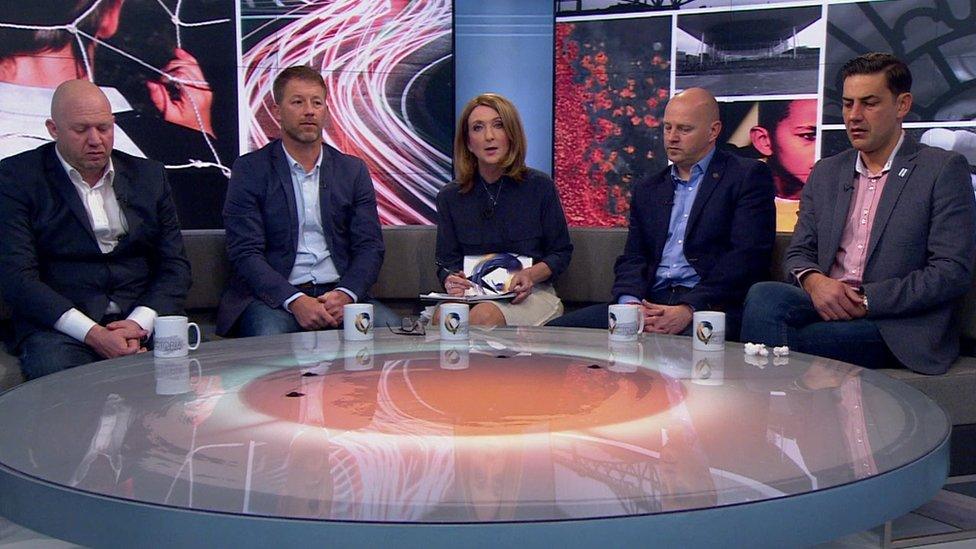
- Attribution
- Published29 November 2016
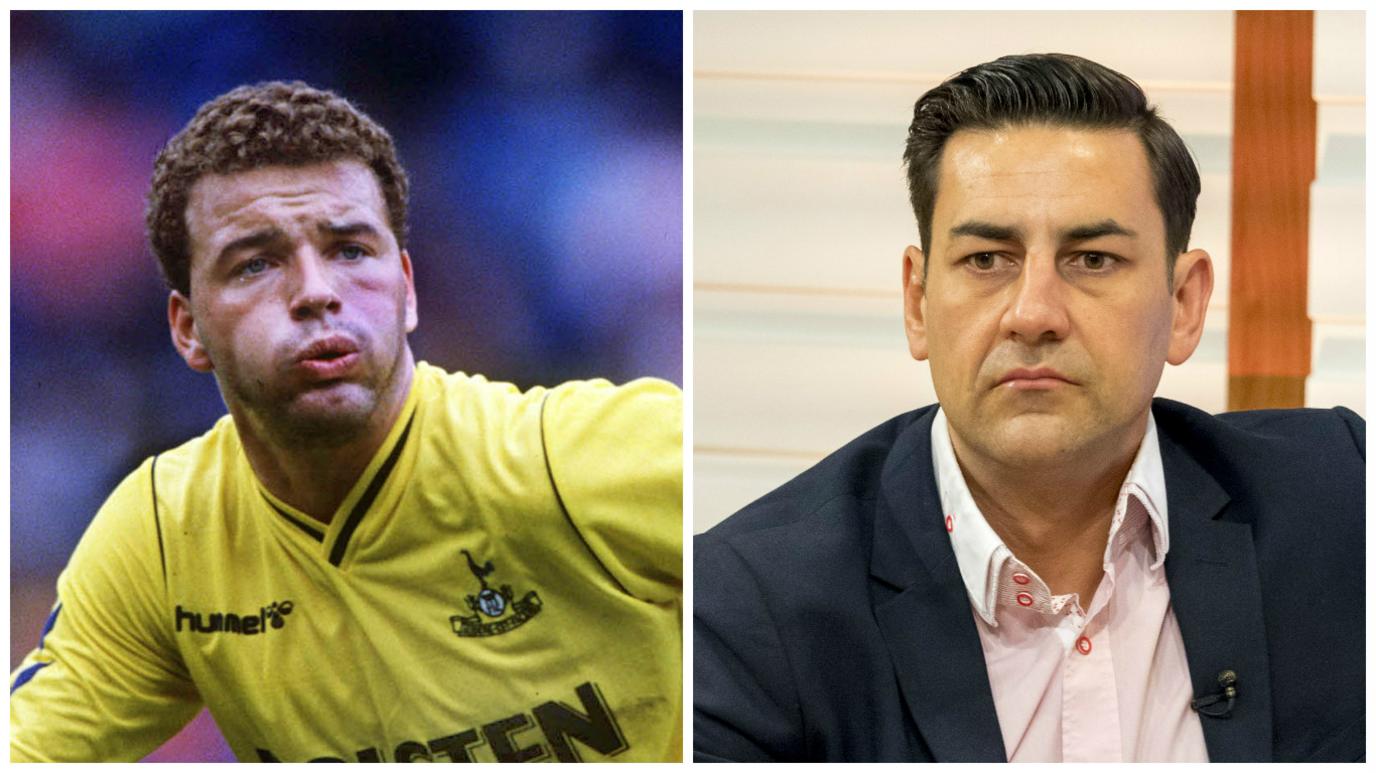
- Published17 November 2016
